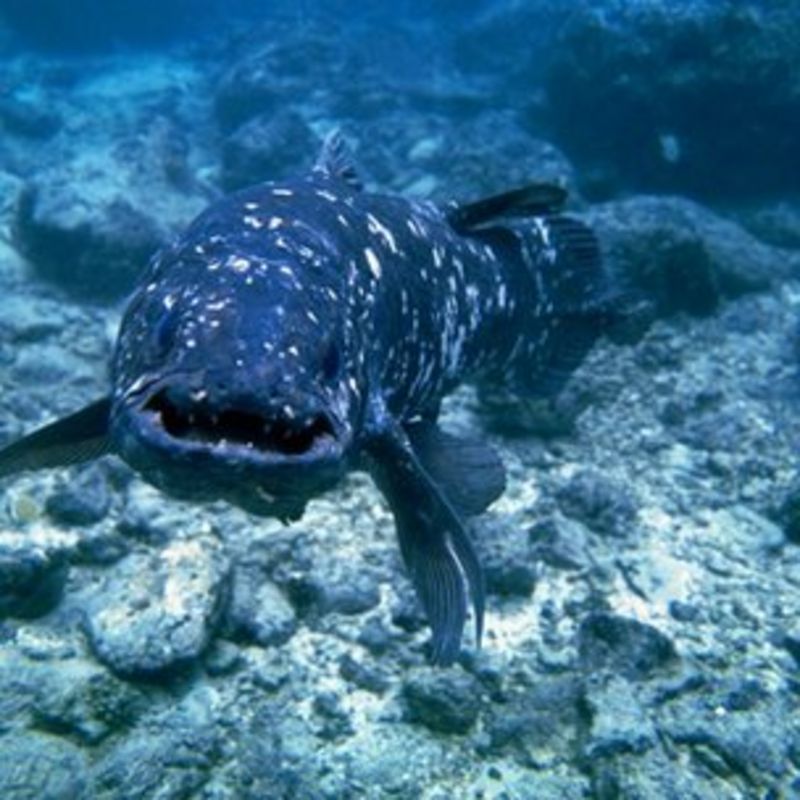Poor Pluto. One day you’re a planet, the next day you’re a “dwarf with potential.”
Look, those damn things (Pluto / Charon, since they’re basically a double bodied system) get closer to the Sun than Neptune, at certain points in their orbit.
There’s dozens of similarly sized objects buzzing around in the same region, and probably thousands of not millions in the Oort cloud.
The only reason “Pluto” were ever called a planet is that they coincidentally happened to be in the wrong place at the wrong time when Tombaugh used Lowell’s miscalculations to look for an hypothetical transneptunian planet (Lowell, at least, had the excuse of having died before Einstein published his theory of relativity, but Tombaugh should have known that Newton wasn’t enough for this kind of thing).
As a millennial who grew up with 9 planets. I don’t care. Pluto is Pluto. Doesn’t matter
Scientists didn’t become pickier - they just later found that Pluto was in a belt of thousands of massive object (called the Kuiper belt), like the asteroid belt but much bigger.
When Ceres was discovered in 1801, it was thought to be a comet, later a planet, but after discovering it was one of many asteroids in the asteroid belt (which it wasn’t big enough to clear), they realized it wasn’t a planet.
When Pluto was first discovered in 1930, it was in a similar situation as Ceres and thought of as a planet, but when other Kuiper belt objects started to be discovered by 1992, they realized Pluto also wasn’t a planet.
they realized it wasn’t a planet.
They made the definition of a planet more precise after Ceres and then again when they found even more comparable objects. The definition update that changed Pluto’s category was necessary because it would have added a half dozen new planets if they kept Pluto as a planet.

It’s not necessarily the size of Pluto thats the problem. It’s that it hasn’t cleared its orbit to make it stand out.
Are you suggesting it “shave” its surroundings to make it look bigger…?
That wouldn’t just make it look bigger, it would be bigger.
Do some people think Pluto actually got smaller and thats why it’s not a planet?!
I wouldn’t put it past an awful lot of people given the stupidity I see on a daily basis.
Pluto is a strange relic that basically got considered a planet only due to the time and method by which it was observed. It was speculated that the perturbations in Neptune’s orbit indicated there was another body beyond it which everyone naturally assumed to be a planet. Clyde Tombaugh looked in the location where such an object was believed to be and found Pluto. It was assumed that this was indeed the planet in question.
Pluto was the first thing of its kind that was discovered, but it turns out that there are a lot of things in the solar system that are about the size of Pluto or even larger. And Pluto is too small to be the thing that was actually influencing Neptune’s orbit, whatever that may be. We just didn’t observe any more of those planetoid bodies until later. But after doing so, that would require us to either declare there are dozens and dozens of planets or, the slightly more sane avenue, come up with a more specific definition of what a planet actually is, which by necessity also excludes Pluto.
All the hype about is basically just down to people refusing to change what they learned in elementary school. But the thing about science is that it changes and is refined over time as we gain understanding of the universe and how things work. This is what makes science science. Anything less is simply dogma.
the thing that was actually influencing Neptune’s orbit, whatever that might be
Calculation error due to Einstein not being available (in Lowell’s case, at least; Tombaugh should’ve known better) and margins of error in the measured masses of the planets at the time (the Voyagers took care of that bit), if I’m not mistaken.
All the hype about is basically just down to people refusing to change what they learned in elementary school
And it’s baffling because how does that even affect anyone in any way unless they work in astronomy? People don’t know and don’t care about the difference between solar system, galaxy and universe, but Pluto being recategorised is STILL causing them intolerable agony?
Well, someone said this was knowledge important to have in general education, so people learned it in school.
Now people are told what they learned in school is either wrong, or not important, so they shouldn’t concern themselves with it.
This raises some important implications about education and its purposes, how things are taught, how “dissent” is handled during eductation and the role of schooling in manufacturing consent in Democracies, the question of how much an individual should trust the state and so on.
If you cannot express or understand these properly or if they contradict other core ideological believes of you, ending up with arguing about Pluto rather than these issues, is normal.
Here’s the thing with “facts”. Every scientific explanation is just our current best explanation. They’re not all perfect and as we learn more the explanations change.
The lesson of Pluto is that science evolves and you have to stay up to date. They’ll be a bunch of stuff you learned as facts that has now been revised, corrected, reclassified or revoked. The other obvious one is how much the appearance of dinosaurs has been revised over the last few decades.
Is that aspect taught in school properly?
Because i mostly remember the teachers telling me to shut up (at best) if i questioned the veracity of what they were teaching. I also got thrown out of math class for saying the method of the teacher is more complicated than what is needed.
Exams are designed so that you regurgitate mostly what you have been told. Maybe you get lucky to have a good teacher in the humanities who is open to individual thoughts and teaches how to think about things critically. Most of the time it is “here is the official and only correct interpretation of event X, place Y, article Z…”
School for the largest part leaves no space to teach about ambiguity and evolving knowledge. Even if the curriculum allows for it, the class size usually doesn’t.
Which brings me back to my hypothesis. People criticizing the changed status of Pluto are feeling betrayed by school.
On one hand I agree with you, but I can also see that you can’t let every class decend into a debate about the material. Unless you have the time to build every “scientific fact” up from the evidence that led to it (and you don’t) you’ll forever be having arguments against every idea coming out of a bunch of 10 year old’s heads.
So you teach it all as solid fact, and then add the nuance later when they’re older. Trouble is, a lot of people either didn’t really understand the impact of the nuance or didn’t connect the dots back to the things they were taught early on.
As for the maths thing, consider that maybe…just maybe…they were teaching you a more advanced technique using a simple example. You didn’t need that technique for the simple example. You needed it for the next part of the course, but you learnt it before you needed it so you understood it when you did need it. You didn’t understand that because you only saw what was Infront of you.
All because of a cartoon dog.
I don’t think they’d care if Neptune and Pluto swapped names.
The explanation I heard back then was that Pluto wouldn’t qualify as a planet, EXCEPT that it has a moon. I’m not sure why that exception would apply, but it seems it’s no longer good enough.
Well, there are seven other known sub-planetary bodies (dwarf planets) in the solar system that also have moons: Eris, Haumea, Makemake, Gonggong, Quaoar, Orcus, and Salacia. Eris in particular is larger than Pluto. So then Eris would have to be promoted to being a planet, too. Along with the other six, plus any more we might discover later. At the time of its discovery I don’t think anyone had yet observed that Pluto has a moon, and it wasn’t discovered until even later that Pluto actually has five moons.
That was an attempt to preserve the order of planets, but a failed one since there are other non-planets with moons. https://xkcd.com/3063
The modern definition doesn’t depend on moons. Which is good because not all planets have them.
I mean, there are literal flat-earthers out there… But for anyone curious about why Pluto is no longer classified as a planet - and what its size has to do with it - Pluto is now considered a dwarf planet because, while it’s large enough to be spherical, it isn’t big enough to dominate its orbit and clear out other objects in its path.
And also because if we included Pluto, we’d have to include another half dozen Pluto-sized dwarves we’ve discovered since.
But, yeah, my understanding is that it’s really about dominance. Pluto is too submissive. Not alpha enough, if you will.
That’s correct by definition, but the reason the definition was changed to exclude pluto was because our knowledge changed.
We found more Pluto-like objects and it became clear they weren’t the same thing as the other 8 planets. They needed their own classification. So we created one (Dwarf Planets) and put Pluto in it along with its brethren.

They’d rather remove Pluto from the list than add Ceres. This is clear discrimination!
Don’t forget Charon!
Not currently recognised as a dwarf planet. A bit of scanning seems to suggest there’s a good argument that it’s should be designated a binary planet system, but that would call into question if the Earth - Moon system is too.
The Moon not being a moon would really mess with people.
So, currently, no not Charon.
Now I want all of these to become planets because their names are cool and I also want to see how absolutely unhinged the mnemonics become.
The mnemonics, you say?
You’ll always be a planet in my heart, Pluto <3
Pluto can still float around the sun like any planet can. It’s just when some scientist comes along and says “well, actually…”.
Maybe in a couple years there’ll be another scientist who says “well, actually…” and Pluto will be a planet again.
It’s not up to Pluto, it’s up to the people who interpret the rules.Size doesn’t matter.









